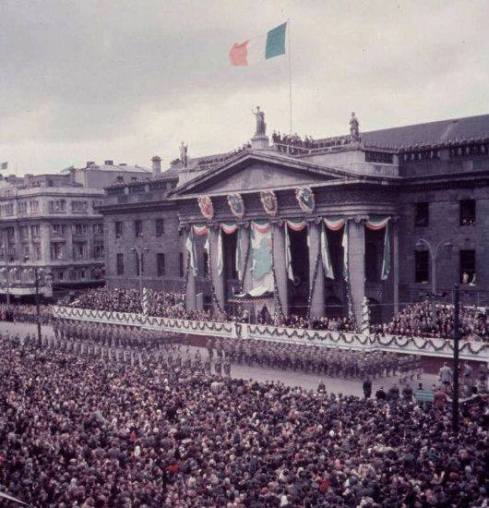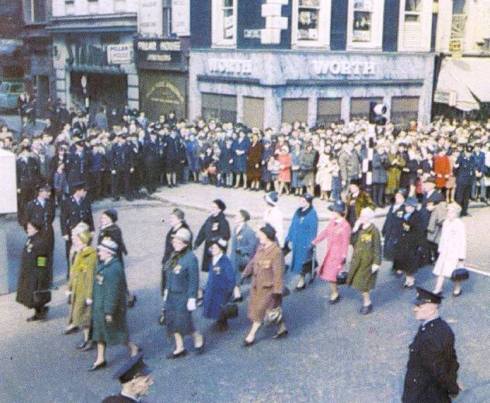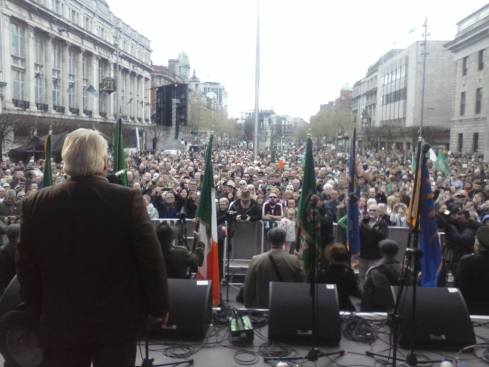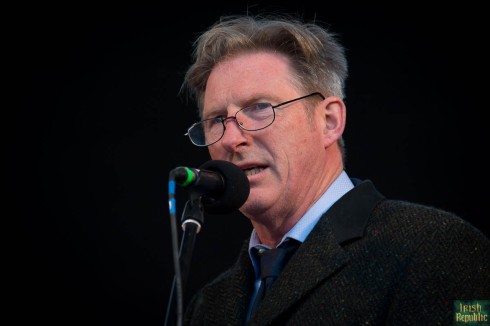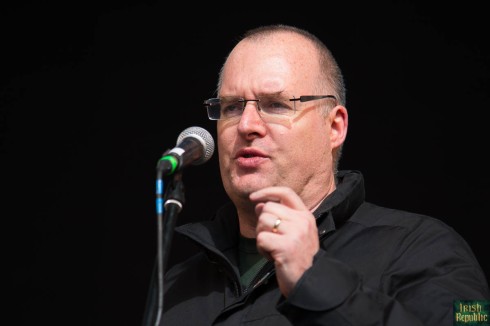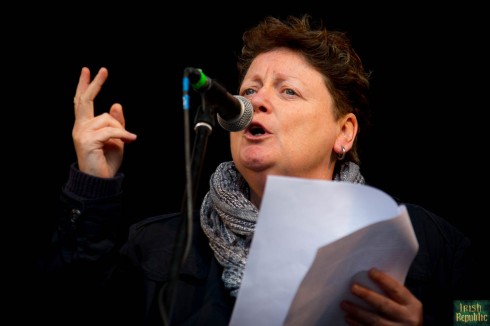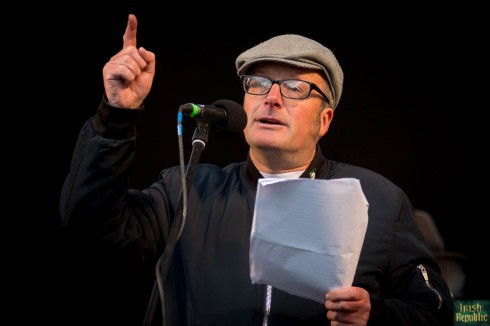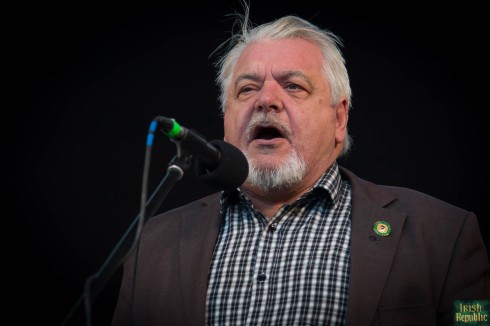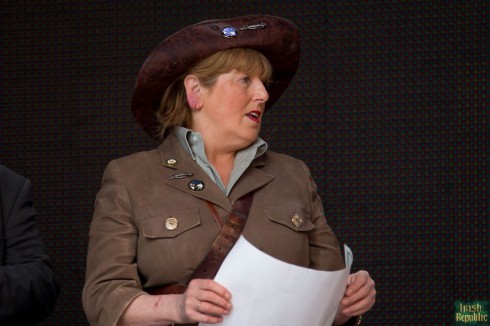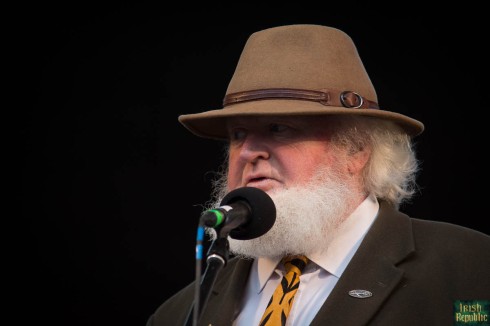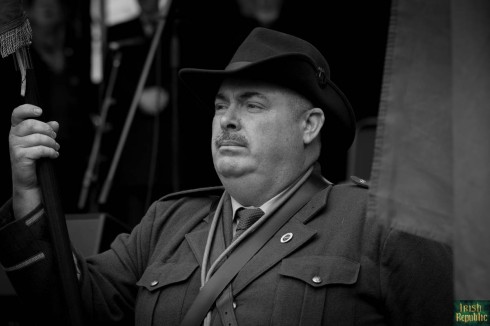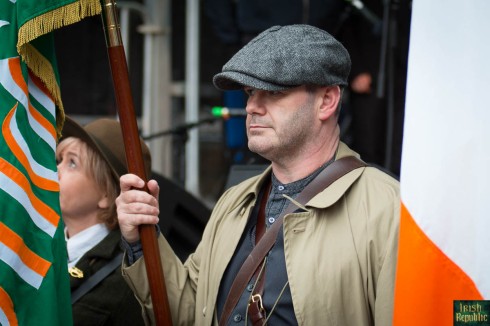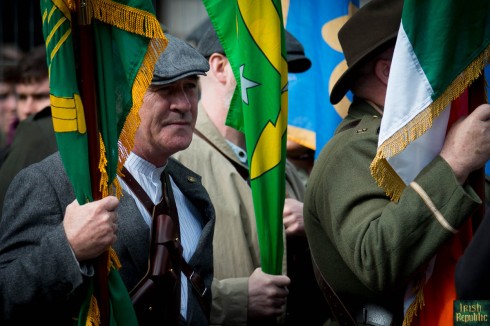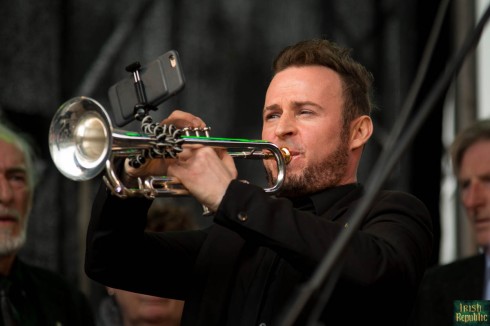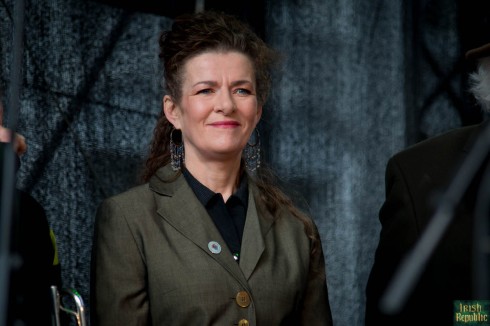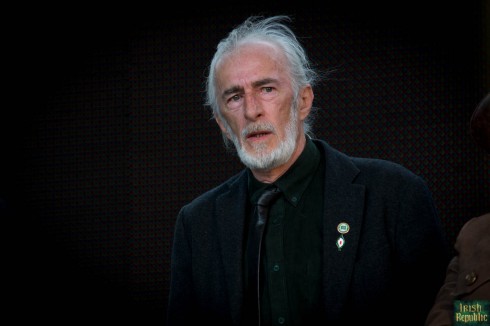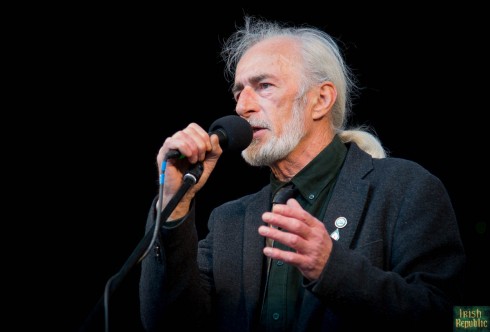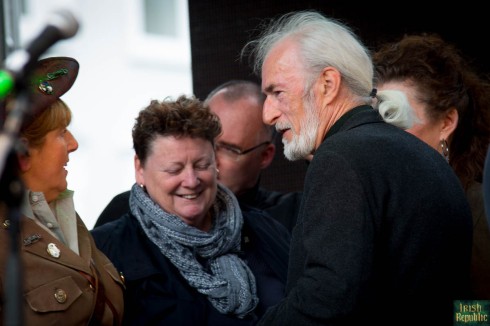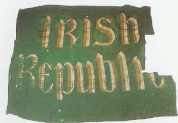We measure ourselves by special birthdays, 13, 18, 21, 30 and so on. We attend annual commemorations and they blend into one another, that is until the special ones – the magic numbers – come around.
When I was seventeen I stood at the corner of the GPO and Henry Street. It was the day of the 50th anniversary of the 1916 revolution. Two stands flanked the portico of the GPO, each full of the surviving 1916 revolutionaries, by now old men and old women.
Just up above me I could see Ernie Nunan who had been a 17 year-old London Volunteer, and a member of the GPO Garrison. I was with his son Jim, my best mate at school. My Volunteer grandfather wasn’t in the stand. He had died in 1940 rescuing a young woman from the sea at the Shelly Banks, and I felt I was representing him.
I remember thinking of the significance of the 50th anniversary, and wondering if I would make it to the centenary, and wanting to. 100 is one of those magic numbers.
I made it. On April 24th 2016, Republic Day, the magic number rolled around.
If the actual anniversary of the revolution in 2010 had been marked by a proper commemoration organised by someone else I would have happily stood at the corner of the GPO and Henry Street again in 2016. But nothing was organised and that is how the Citizens’ Initiative for Republic Day was started – to cover that outrageous omission. Each year since, a group of citizens has marked that date with a proper commemoration under the Republic Day banner.
But the centenary commemoration had to be different, in scale and content. In spite of impediments thrown up by others we held firm, refusing to be squeezed out, not because of hubris or ego, but because we offered what others didn’t, a neutral space capable of being occupied by all as equal citizens, provided they were prepared to set their politics or differences aside for a short time so as to concentrate on the real purpose of a commemoration, that is to remember and honour those from another time who are worthy of being commemorated.
Nobody should feel inhibited about attending a 1916 commemoration because of their politics or religion or skin-colour, or because of factional differences with others. That would fly in the face of the principles on which a republic is founded – Liberty, Equality and Solidarity – and because the republic is the property of the people – all of the people. And so neutral space is necessary, particularly if we are also commemorating the Proclamation of the Irish Republic, given political and/or factional differences that exist.
I know that that worked. Looking out at the assembly I could see citizens I know of different political persuasions or belonging to different factions. All were entitled to be there, to play their part in the commemoration and to be at peace with the moment and the collective of which they were part. The extensive feedback on the day and especially since the commemoration have unanimously endorsed the sense that something special was experienced by all, that any differences had been put to one side, and that all present were unified, standing shoulder to shoulder as equals, paying tribute to the men and women of 1916.
In 50 years time, some of the children and teenagers who were present on Republic Day 2016 will again assemble at the GPO for the 150th anniversary of the 1916 revolution. The torch has been passed to them.
I owe a huge debt of gratitude to those who contributed on stage; Adrian Dunbar, Ruan O’Donnell, Marie Mulholland, Lorcán O’Coileáin, Rita Fagan, Fergus Russell, Proinsias O Rathaille, Danny Healy and Mary Stokes – and to the Colour Party of Paul Callery, James Langton, Pól De Pléimeann, Dáithí O’Cuinn, Brendan Hickey and Pauline Mc Caul. Shane Stokes provided a lot of support, including the live-streaming of the commemoration for the benefit of those who could not be with us, and photographing it on my behalf. Thank you to all. Comrades!
But it is the citizens who participate who really make a commemoration valid and true, and so thank you to all who attended. As I said in my closing remarks, I think we managed to create a mini Irish Republic at the GPO for at least 45 minutes on Republic Day, although I think that mood continued for the rest of the day. As Adrian Dunbar said later, perhaps we opened a gap into a space that people can occupy where differences aren’t a roadblock to progress. That is what being a citizen of a true republic should be like.
Let’s now work to create the full-scale Irish Republic without delay, for the benefit of all.
We can do that. First imagine, then believe, then act. We’ll use ideas and words and listening and persuasion instead of bullets.
That way we can arrive at the Irish Republic. What a beautiful destination that will be.
Video of live-stream of the Citizens’ Centenary Commemoration
